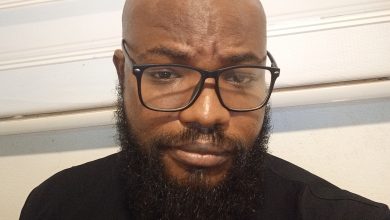
- A top official in Sudan's military council has told the BBC it will not allow civilians a majority on the supreme council set to rule the country during a transitional period.
A top official in Sudan’s military council has told the BBC it will not allow civilians a majority on the supreme council set to rule the country during a transitional period.
Lt Gen Salah Abdelkhalek said that the most they would accept would be an equal split with civilians.
Protesters are continuing their mass sit-in outside military HQ to demand that the army cede control.
President Omar al-Bashir was ousted from power on 11 April after 30 years.
He was replaced by a military transitional council that promised to relinquish power to civilians within two years – a proposal rejected by protesters.
Protest leaders accuse the military of not negotiating in good faith and promoting the interests of Mr Bashir.
The military leaders say that they need to be in charge to ensure order and security in the country.
What did the general say?
“[It’s] a red line, maybe half and half,” Lt Gen Abdelkhalek told BBC Newsday presenter James Copnall about the military council’s likely compromise on the make-up of the supreme council.
It’s still unclear how the supreme council would operate but it’s likely to be above the government, which would be be technocratic, with civilians running it, our reporter says.
The seven-member military council is led by Lt-Gen Abdel Fattah Abdelrahman Burhan, who told the BBC last month that he was willing to hand over power if a consensus could be reached with civilian leaders.
Opposition leaders on Thursday sent a draft constitutional document to the military council, outlining their proposals for the transition period before elections are held.
They say they’re now awaiting a response. The draft document outlines the duties of a new transitional council, but doesn’t specify who would sit on the council.
The African Union revised its 15-day ultimatum set on 15 April for the military leaders to hand over power to civilian rule. They now have 60 days or face suspension from the continental body.
What is the military headquarters like?
A satellite image of the military HQ in the capital, Khartoum, where protesters have gathered, reveals that the designers of the complex appeared to take their job literally.
From the air, it is clear that the navy is headquartered in a boat-like structure and the air force in what looks like a gigantic aeroplane.
The army building has three prongs which resemble the fin tail of a missile.
Where is Bashir?
The 75-year-old leader was moved to the high-security Kobar prison in the capital, Khartoum, days after he was deposed.
Sudan’s public prosecutor ordered on Thursday that the former president be questioned on charges of money laundering and financing terrorism.
Authorities found suitcases loaded with more than $351,000, €6m ($6.7m; £5.2m) and five billion Sudanese pounds ($105m) at Mr Bashir’s home during a raid last month.


